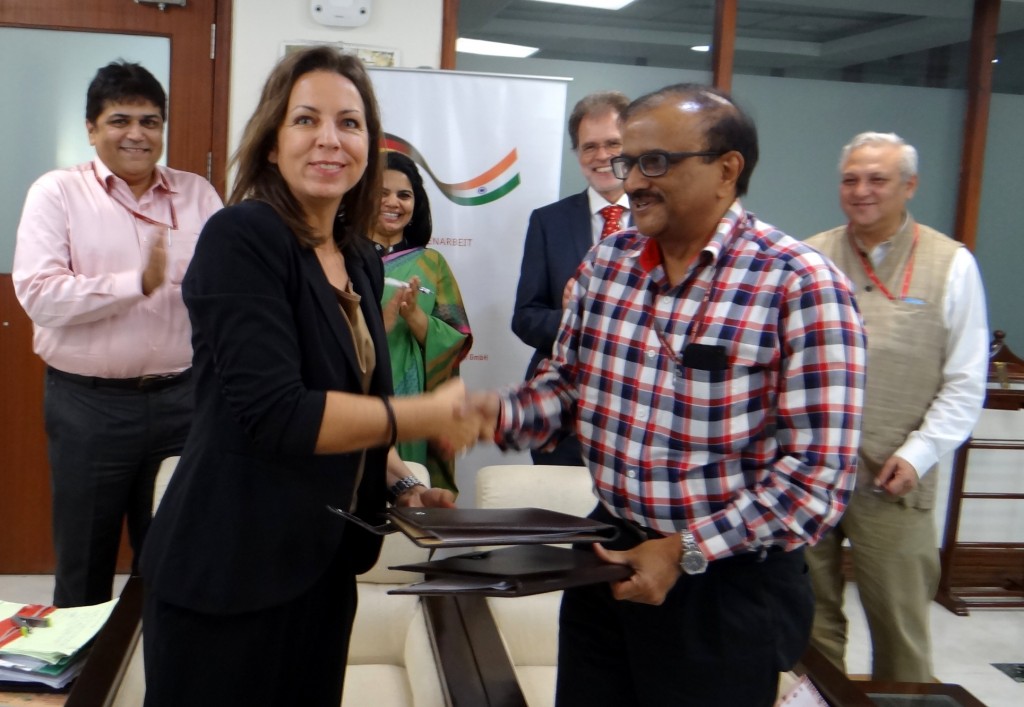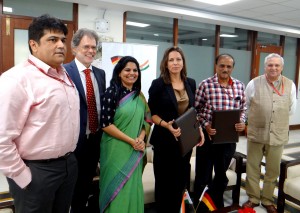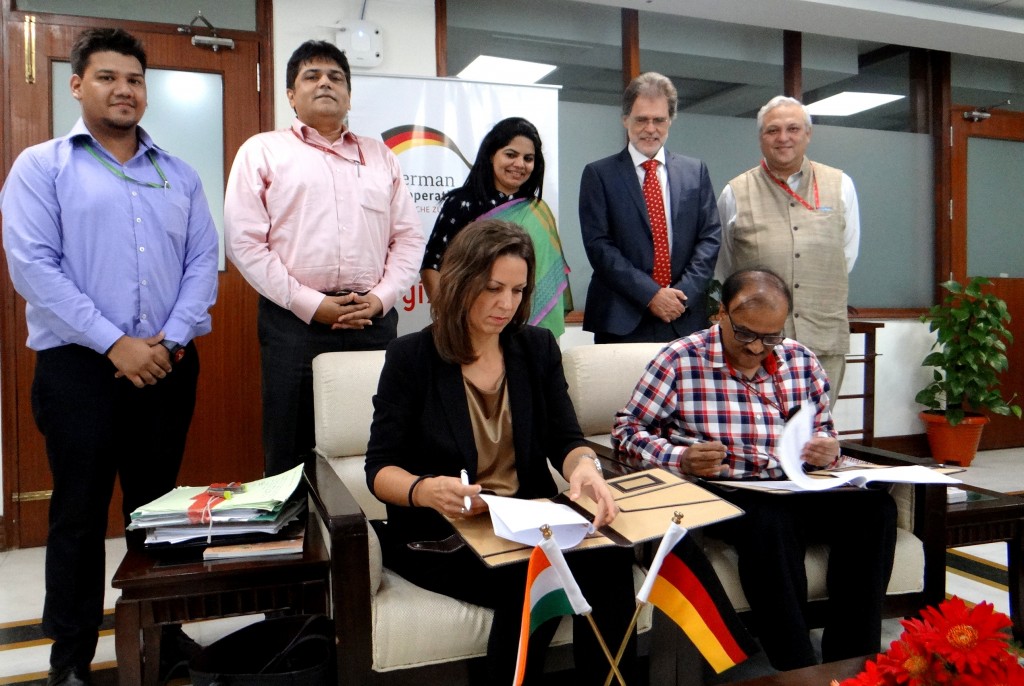MoEFCC and GIZ ink an agreement to mitigate the impact of human-wildlife conflict in India
The Ministry of Environment, Forest and Climate Change (MoEFCC), Government of India and Deutsche Gesellschaft für Internationale Zusammenarbeit (GIZ) GmbH India on behalf of the Government of the Federal Republic of Germany signed an agreement on technical cooperation for the Indo-German Human Wildlife Conflict Mitigation (HWC) project on 11.10.2017 in New Delhi.
The agreement was signed at the Ministry of Environment, Forest and Climate Change at Indira Paryavaran Bhawan, Jor Bagh Road, New Delhi. Ms Tanja Feldmann, Deputy Country Director, GIZ India and Dr. Konrad Uebelhoer, Programme Director, Indo-German Biodiversity Programme signed on behalf of GIZ, and Sh Siddhanta Dasgupta, Director General and Special Secretary, MoEFCC signed for the Ministry of Environment, Forest and Climate Change, Government of India. Sh Soumitra Dasgupta, the Inspector General of Forests Wildlife, MoEFCC, Dr Neeraj Khera, Senior Advisor, GIZ, and Mr Farhad Vania, GIZ were also present on the occasion.
 Speaking on the occasion, Sh Siddhanta Dasgupta said “Management of Human wildlife conflict in India is an urgent and important issue for our Ministry. There are a number of institutions and experts working on this and also supporting the wildlife managers, and there have been some successful cases of mitigating the conflict in some areas. However, the conflict cases are on a rise primarily due to the degradation of natural habitats resulting in a decreased carrying capacity. It is necessary to look at the situation in a holistic manner, with involvement of all the relevant stakeholders and apply innovative technical solutions. I am therefore happy to welcome the German technical cooperation, and sign the implementation agreement with GIZ today, and look forward to working jointly to mitigate the negative impacts of human wildlife conflict in India.”
Speaking on the occasion, Sh Siddhanta Dasgupta said “Management of Human wildlife conflict in India is an urgent and important issue for our Ministry. There are a number of institutions and experts working on this and also supporting the wildlife managers, and there have been some successful cases of mitigating the conflict in some areas. However, the conflict cases are on a rise primarily due to the degradation of natural habitats resulting in a decreased carrying capacity. It is necessary to look at the situation in a holistic manner, with involvement of all the relevant stakeholders and apply innovative technical solutions. I am therefore happy to welcome the German technical cooperation, and sign the implementation agreement with GIZ today, and look forward to working jointly to mitigate the negative impacts of human wildlife conflict in India.”
Ms Feldmann from GIZ added “GIZ, through this project, will support the Indian Ministry of Environment, Forest and Climate Change in applying innovative instruments of human-wildlife conflict mitigation in the selected pilot areas, and will further support in developing effective and sustainable solutions for managing human wildlife conflict. GIZ holds expertise in bringing together important stakeholders on a common platform to discuss conservation issues, and we definitely look forward to utilising this expertise for this project too”.
 The project is supported by the German Federal Ministry for Economic Cooperation and Development (BMZ) and implemented by the Ministry of Environment, Forest and Climate Change (MoEFCC), Government of India and Deutsche Gesellschaft für Internationale Zusammenarbeit (GIZ).
The project is supported by the German Federal Ministry for Economic Cooperation and Development (BMZ) and implemented by the Ministry of Environment, Forest and Climate Change (MoEFCC), Government of India and Deutsche Gesellschaft für Internationale Zusammenarbeit (GIZ).
The main objective of this project is that the local rural communities in project pilot areas are better protected against human wildlife conflict after applying agreed mitigation measures.
Being committed to this objective, GIZ and MoEFCC will work together on developing a national strategy to mitigate human wildlife conflict, pilot application of newly developed instruments for the management of human wildlife conflicts in selected states, and facilitating capacity development of institutions and individuals for mitigating human wildlife conflict.
Dr Konrad Uebelhoer, Director, Indo-German Biodiversity Programme GIZ extended his vote of thanks and emphasized, “the implementation of the project will require a mutual learning partnership between MoEFCC and GIZ. Our added values are the many international experiences on the topic, the access to many different sources of expertise and our familiarity with multi-stakeholder approaches.”
www.indo-germanbiodiversity.com


